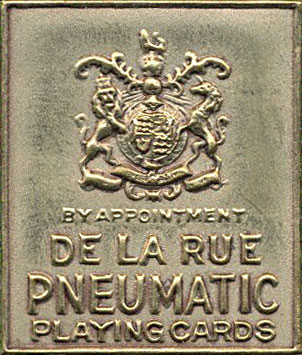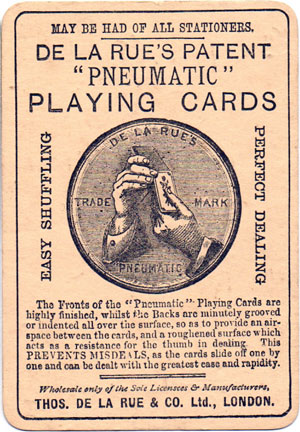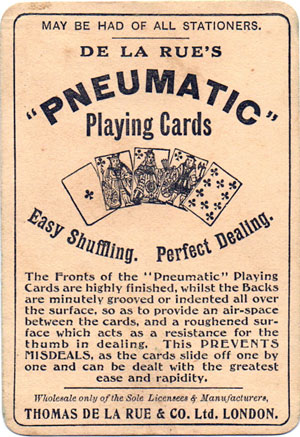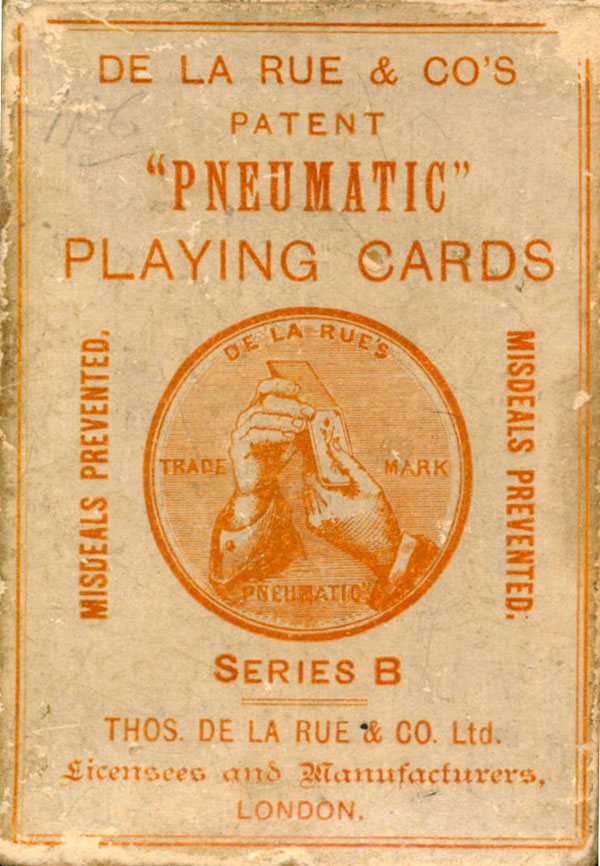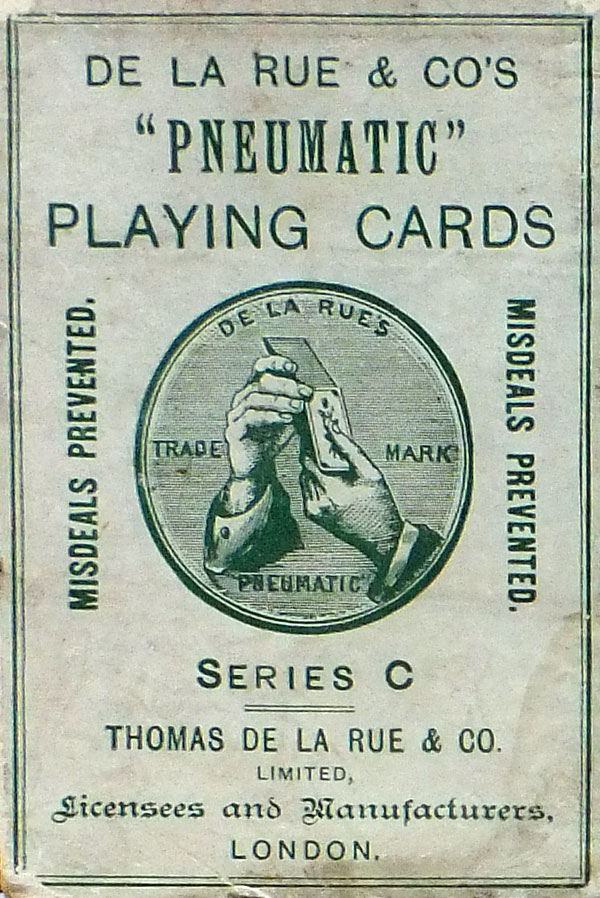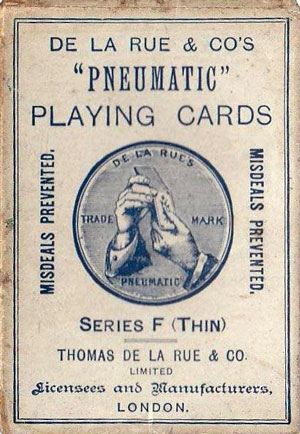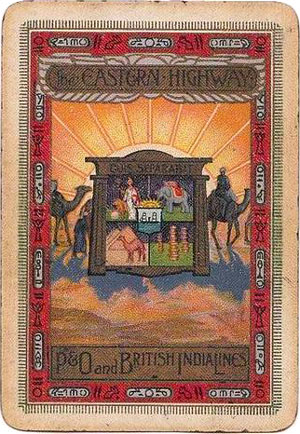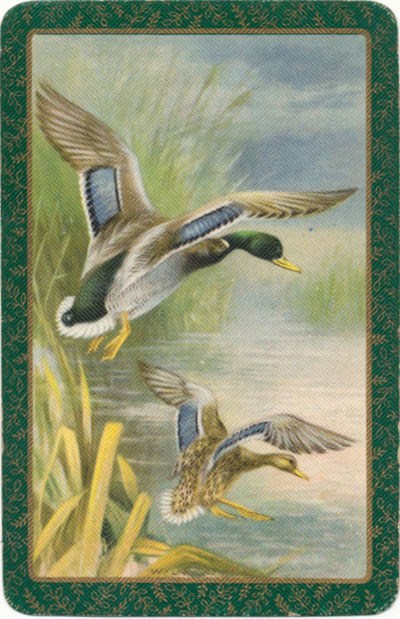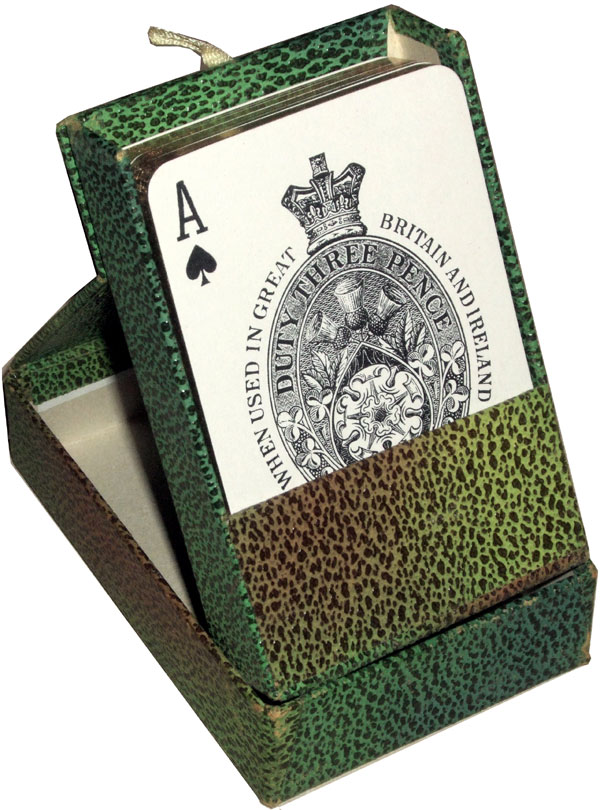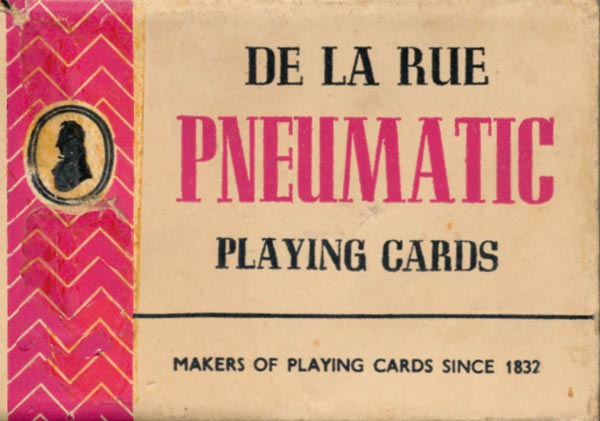Pneumatic Playing Cards
The surface of the cards was slightly grooved by being rolled on prepared plates, so that there were little pockets of air between each card, which prevented them sticking together.
Thomas De la Rue & Co’s “Pneumatic Playing Cards”, c.1890 - c.1965
Easy Shuffling - Perfect Dealing
Pneumatic playing cards were invented by William Thomas Shaw, an old employee and De la Rue friend who had recently become a partner in the company. The surface of the cards was slightly grooved by being rolled on prepared plates, so that there were little pockets of air between each card, which prevented them sticking together. The invention came at about the same time as round corners and indices, i.e. c.1890. By impressing a herringbone design into the back of the card air was trapped to prevent sticking and cards slid easily during dealing.
“We have received from Messrs. Thomas de la Rue & Co. specimens of playing cards made on a principle which they have patented and describe as “pneumatic”, its object to facilitate shuffling and dealing, by preventing the cards from adhering to one another while they are manipulated. The invention consists of a special preparation of the surfaces of the cards. The fronts are highly finished while the backs are minutely grooved or indented all over, so as to provide an air space between the cards and a roughened surface, which acts as a resistance for the thumb in dealing. The cards slide off one another with ease and rapidity.” Extracted from “The Times” 16th February 1891 and quoted in The Newsletter of the English Playing Card Society, issue 64, May 1999, p.29.
“Pneumatic” playing cards were originally introduced in hard telescopic boxes, with geometric or plain back designs, in a range of different qualities (thicknesses) at prices ranging from one shilling to two shillings. There was also a matching paper wrapper inside the box with a tax wrapper around it. “Pneumatic” playing cards were also issued by De la Rue's subsidiary The Empire Card Co. Ltd.
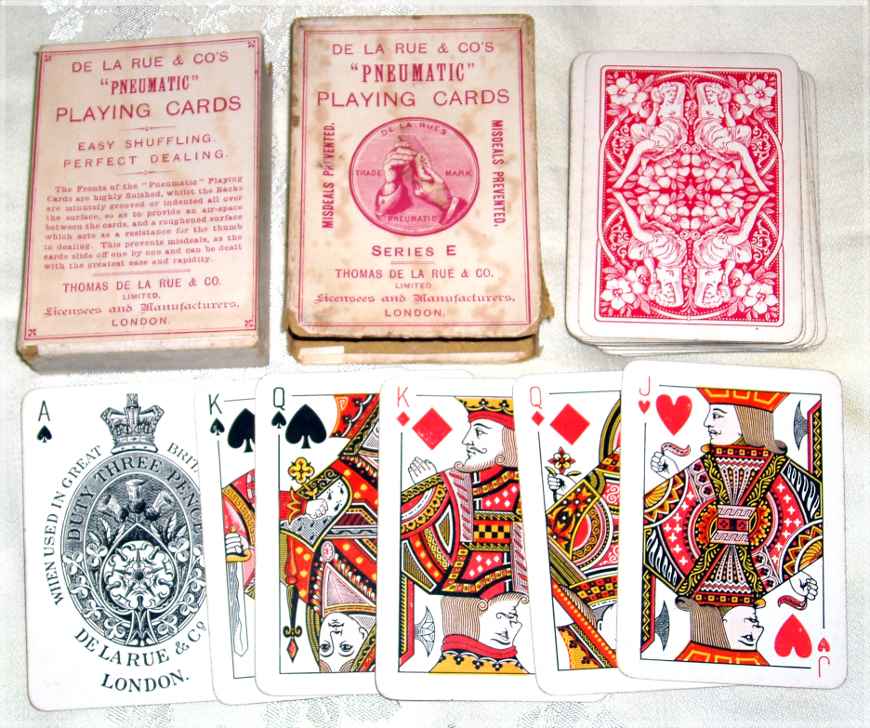
Above: De la Rue & Co’s “Pneumatic” playing cards, series 'E'. The corner indices are incorporated into the card borders, c.1900-1922.
Over the years “Pneumatic” became an established brand name for De la Rue's playing cards with pictorial back designs and were featured regularly in stationery catalogues and brochures in the 1930s. By this time “Pneumatic” playing cards were presented in fancy padded boxes with assorted designs, metallic badges, with or without gold edges, in wide or narrow size as well as patience packs, priced at between two and three shillings per pack.
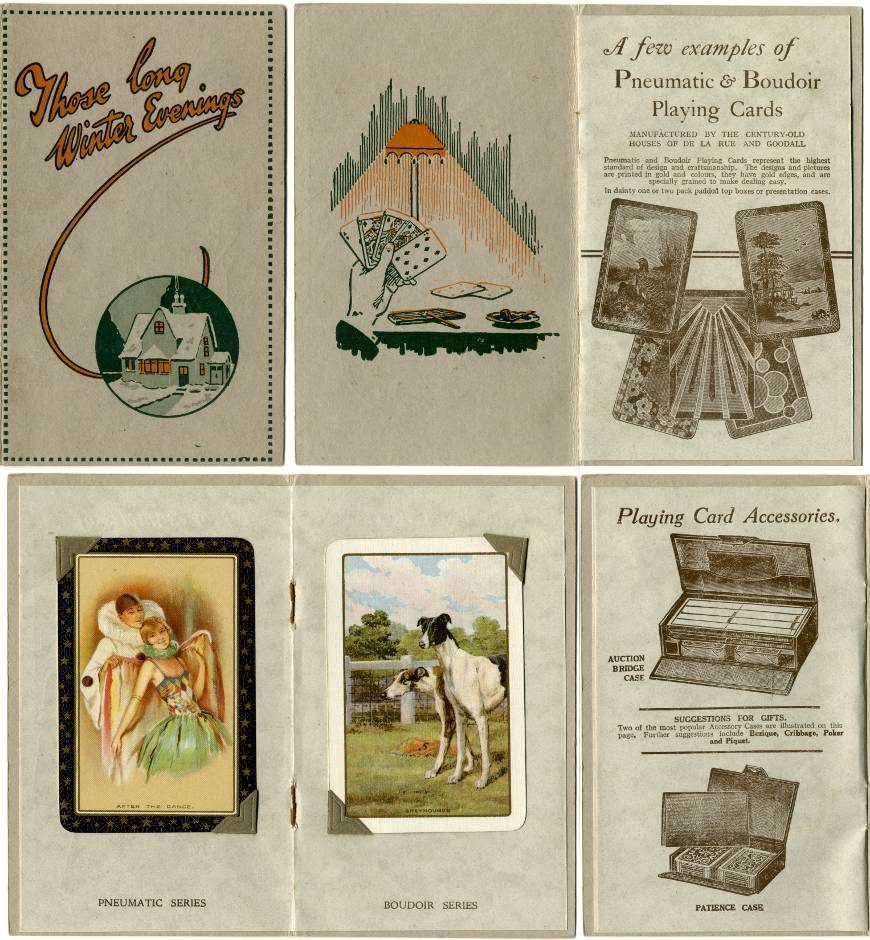
Above: publicity leaflet featuring “Pneumatic” and “Boudoir” playing cards, c.1930. The “Boudoir” brand had been acquired when De la Rue took over Goodall & Sons in 1921.
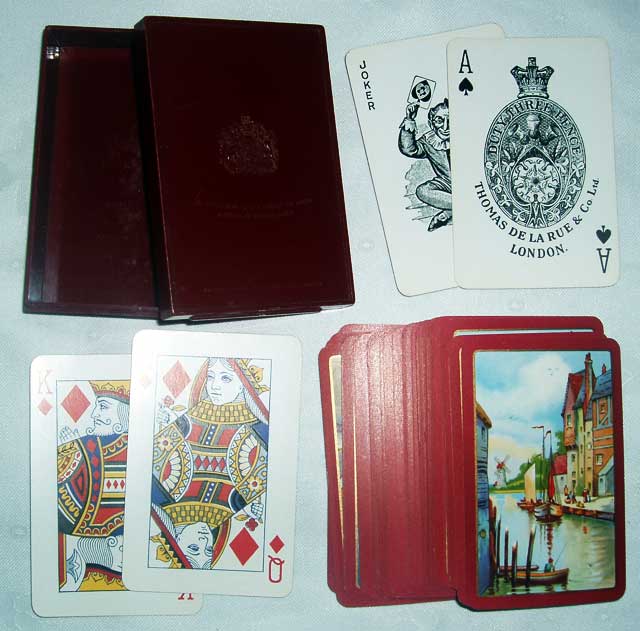
Left: 'Pneumatic' Pictorial playing cards by De la Rue, c.1953. The backs of the cards are embossed with De la Rue's special herringbone 'Pneumatic' finish.

By Simon Wintle
Member since February 01, 1996
I am the founder of The World of Playing Cards (est. 1996), a website dedicated to the history, artistry and cultural significance of playing cards and tarot. Over the years I have researched various areas of the subject, acquired and traded collections and contributed as a committee member of the IPCS and graphics editor of The Playing-Card journal. Having lived in Chile, England, Wales, and now Spain, these experiences have shaped my work and passion for playing cards. Amongst my achievements is producing a limited-edition replica of a 17th-century English pack using woodblocks and stencils—a labour of love. Today, the World of Playing Cards is a global collaborative project, with my son Adam serving as the technical driving force behind its development. His innovative efforts have helped shape the site into the thriving hub it is today. You are warmly invited to become a contributor and share your enthusiasm.
Related Articles

Scientific Whist
“Scientific Whist” : standard cards with instructions for play on the faces by Chas Goodall & Son, 1...

Agent Provocateur
Branded lingerie collection in a pack of pin-up playing cards.

Nimbus playing cards
Mike Steer’s weather-themed pack with suits in four colours and backs for cardistry.

Agatha Christie and Playing Cards revisited
Agatha Christie uses card-play as a primary focus of a story, and as a way of creating plots and mot...

The Decadent Deck
Studies in the eroticism of the female body by Inge Clayton.

Historic Shakespeare
“Historic Shakespeare” playing cards featuring Shakespearean characters by Chas Goodall & Son.

Copechat Paramount Sorting System
Preserving the past: a specimen deck showcasing edge-notched cards and their ingenious sorting syste...

Heartsette by Herbert Fitch & Co, 1893
A glimpse into a busy print and design office in late Victorian London.

Intersigma
A Czech advertising deck for a company dealing with pump technology.

Batman® playing cards
Batman playing cards published by InterCol of London 1989.

Can You Believe Your Eyes?
“Can You Believe Your Eyes?” playing cards featuring visual illusions & other oddities.

Pastime Playing Cards for the Blind
The “Pastime” Playing Cards for the Blind manufactured by Goodall & Son Limd., c.1910.

Songs with Flute accompaniment
Eighteenth century English engraved cards with music for voice and flute.

Love Tests
Vintage novelty “Love Test” cards of a slightly saucy nature but all in good fun!

Ben 10 playing cards
Characters from the American animated television science fantasy series Ben 10.

Doctor Who Trump Card Game
Game for two players in which Doctor Who and the Legendary Legion join battle with the Alien Hordes....
Most Popular
Our top articles from the past 28 days


